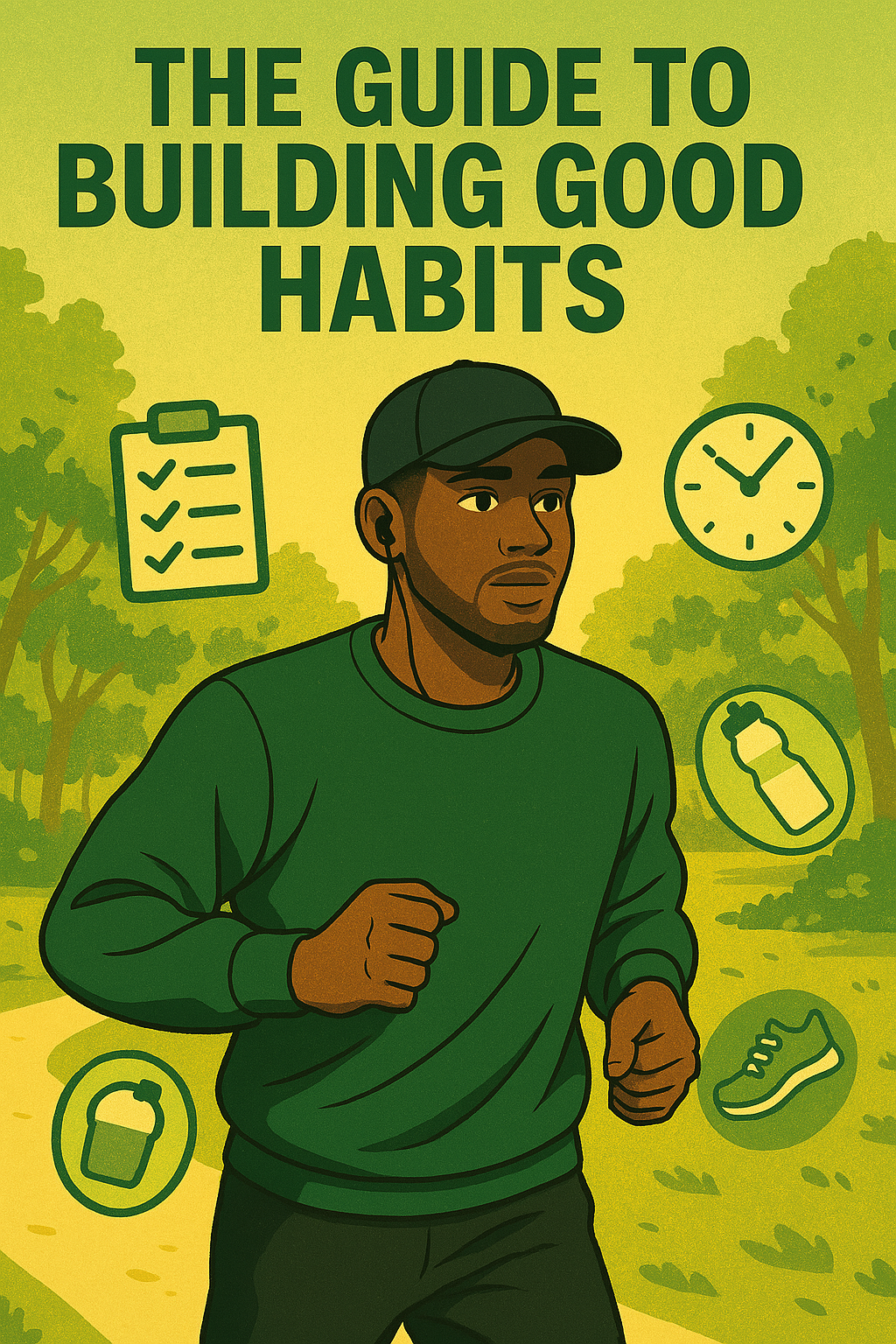
21 Apr The guide to building good habits
Good Morning team
Let’s be honest—most of us don’t need more motivation, we need better systems. If you have been reading my entries for any amount of time, you know I say this all the time. You don’t rise to the level of your goals, you fall to the level of your systems
We need mornings that start on our terms, not our phones. We need evenings that actually feel like endings, not just pauses between scrolling sessions. More than anything, we need lives that run on rhythms, not chaos. This article will explore how to build habits that actually stick.
I’ve come to believe that the difference between people who are thriving and those who feel stuck isn’t talent or time—it’s habits. The small, often boring, mostly invisible things we do over and over again. The things that don’t get applause but shape who we become. I wrote about this a while ago when I discussed consistently good, not occasionally great
For years, I prided myself on being spontaneous. I told myself that discipline was restrictive and that routines were for people who wore the same outfit every day and had “inbox zero” as a personality (Superhuman joke). But over time, that story started to crumble. My work felt scattered, and my energy was all over the place. I was chasing inspiration like it was a butterfly I might catch if I just stared at my phone hard enough.
It wasn’t until I started building daily habits—simple, sustainable ones—that things shifted. Not overnight, but steadily. Like laying bricks, one decision at a time, things slowly began to change.
Why habits matter more than motivation
Motivation is a liar. It shows up when it wants. It makes big promises and rarely keeps them. Habits, on the other hand, are loyal. They stick around and they don’t care how you feel.
Think of habits as the architecture of your identity. Every time you write, run, pray, read, meditate, or choose water over sugar, you’re casting a vote for the person you want to become. It’s not dramatic—but it is decisive.
And the good news? You don’t have to overhaul your whole life to see real change. You just have to pick one area, one habit, and commit.
A couple of years ago, I was talking to a friend who always seemed on top of things. He was writing regularly, had energy for deep work, and actually slept eight hours a night (still a dream for me). I asked him his secret and expected a productivity hack. Instead, he said, “I just decided I’m not going to negotiate with myself every day.”
That hit hard. Because that’s exactly what I was doing—negotiating. Should I work out today? Should I go to bed now or watch one more episode? Should I write or wait until I feel inspired?
He had taken decision fatigue out of the equation by making certain behaviours non-negotiable. That’s when I started treating habits as agreements with myself, not options.
Start with one area of friction
The easiest way to begin is to notice what feels hard right now. Where are the leaks in your energy? Where does your time seem to disappear?
Pick one area and ask yourself: what’s the smallest habit I could build here that would make life a little easier or better?
Some examples:
-
If your mornings are chaotic: Set your clothes out the night before.
-
If you’re always on your phone: No screens for the first 15 minutes of the day.
-
If you’re feeling foggy: Drink a full glass of water when you wake up.
-
If you’re scattered: Write down your top 3 priorities the night before.
You don’t need a full routine. You need one reliable anchor.
Here’s a snapshot of some of the daily habits I’ve built that genuinely improved my life:
-
Sunlight in the first hour: It helps my mood and sleep more than any supplement I’ve tried.
-
Daily bible reading: Every day, I read the bible, which grounds me
-
Day before prep: I always prep for the day the night before, so I’m not rushing in the mornings
-
Daily walk (even 10 mins): Moving my body is a reset button.
None of this is fancy. But together, it’s created a rhythm that feels like scaffolding and not a straitjacket.
The habit loop (and why you should care)
James Clear breaks it down like this:
-
Cue – something that triggers the habit
-
Craving – the desire for change
-
Response – the action you take
-
Reward – the benefit you get
If your habits aren’t sticking, it’s usually because one of these is broken. You’re missing a clear cue. The reward isn’t strong enough. Or the habit is too big and overwhelming.
So to simplify it all, attach your new habit to something you already do.. Want to journal? Do it after your morning coffee, which you almost never skip. Want to stretch? Do it before you shower. Create a cue, make the action tiny, and celebrate even the smallest win.
Your Challenge This Week
Pick one daily habit. Something small enough that it feels slightly ridiculous to skip, then do it every day this week.
Track it. Celebrate it. Don’t aim for perfection, aim for consistency.
A message from Mike
If you’ve been getting something meaningful from these entries—if they’ve made you pause, reflect, laugh, or feel just a little more alive—I want to invite you to go one step deeper.
This newsletter is part of a bigger vision: helping people like you live intentionally, lead wisely, and build lives that feel true. When you become a paid subscriber, you’re not just supporting content—you’re investing in a space that encourages slow growth, honest self-reflection, and brave self-authoring.
Your subscription helps me:
-
Spend more time crafting thoughtful, research-backed pieces
-
Create resources that actually move the needle in your personal growth
-
Build a community of people committed to living with purpose, not pressure
And in return, you’ll get exclusive essays, behind-the-scenes thoughts, practical tools, and first dibs on future workshops and offerings.
It’s more than content—it’s a conversation we’re building together. If that sounds like something you want in on, I’d love to have you as a paid subscriber.
Let’s write better stories—starting with our own.
Warmly,
M.T. Omoniyi


